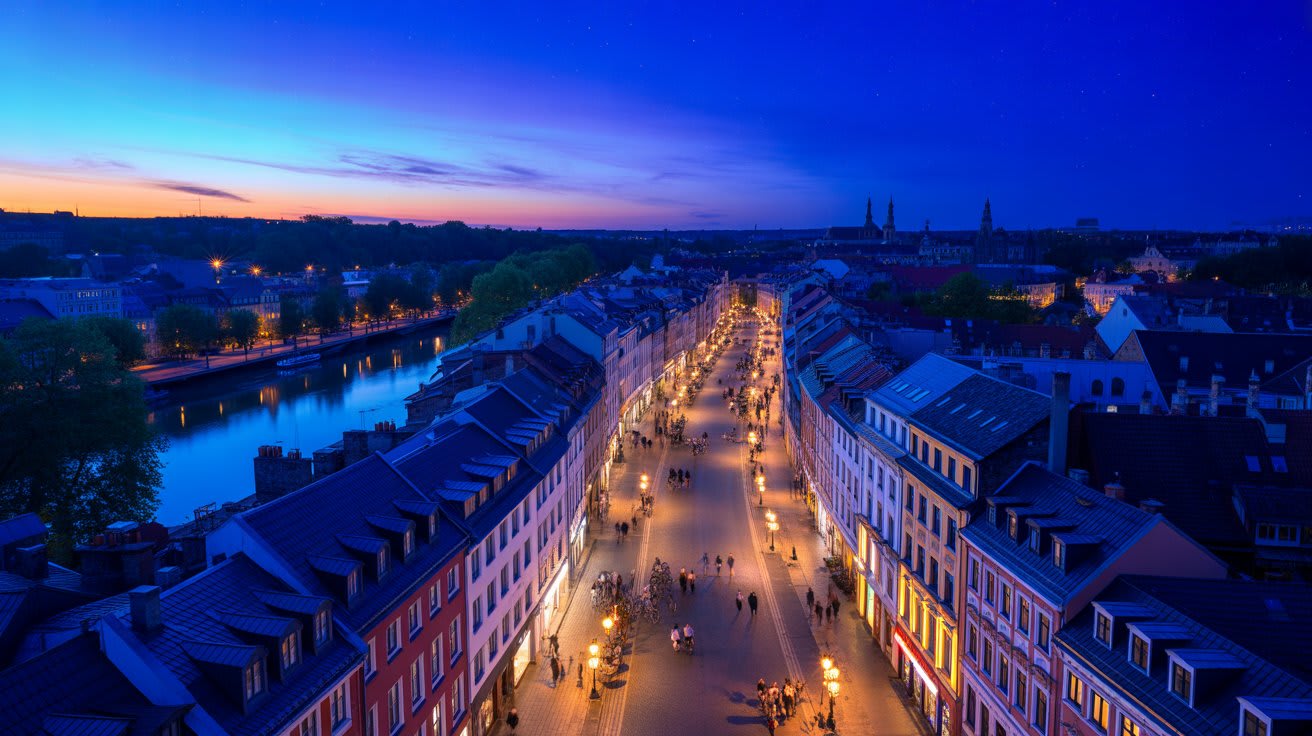When you walk through the cobblestone streets of a small European town, you notice something almost immediately. People aren’t rushing with hunched shoulders, faces buried in phones, or expressions of exhaustion. Instead, cafés spill onto sidewalks, neighbors stop to chat in the sunshine, and children ride bicycles without the constant hum of traffic horns. For many visitors, the question arises naturally: why do Europeans seem to live such good lives?
The answer is not just one secret, but a combination of cultural values, policies, and daily habits that prioritize living well over simply working hard. Understanding this way of life reveals lessons that can be applied anywhere in the world.
Work-Life Balance Over Endless Hustle
One of the biggest reasons Europeans enjoy a higher quality of life is their approach to work. In much of Europe, the idea of working 60 hours a week to climb the ladder is not celebrated. Instead, people value balance. Many countries legally guarantee at least four weeks of paid vacation per year. In France, the workweek is capped at 35 hours, while in Germany and the Netherlands, flexible schedules and shorter working hours are common.
This doesn’t mean Europeans lack ambition. It means they recognize that productivity should not come at the cost of health and happiness. By structuring work around life instead of life around work, they preserve time for family, friendships, and personal growth—things that money can’t replace.
Universal Healthcare and Social Safety Nets
Another secret lies in the security of knowing you won’t go bankrupt if you get sick. European nations generally provide universal healthcare, meaning everyone has access to medical care without crippling costs. In addition, social safety nets such as unemployment benefits, parental leave, and affordable education reduce stress and create a sense of stability.
This doesn’t just improve health outcomes—it changes how people live day to day. Parents know they can raise children without fear of overwhelming medical bills. Students can pursue higher education without decades of debt. The elderly receive pensions that allow them to retire with dignity. These systems make life feel less like a constant struggle for survival.
A Culture That Values Time
Perhaps the most beautiful difference is how Europeans view time. In Italy and Spain, the concept of “la dolce vita” or “the sweet life” emphasizes slowing down, savoring meals, and enjoying company. In Scandinavian countries, the idea of hygge (a Danish word meaning coziness and comfort) is about creating warmth and connection in everyday life.
Even in bustling cities like Paris or Vienna, you’ll find people lingering over a coffee rather than rushing with a paper cup in hand. This cultural respect for leisure encourages mindfulness and connection—two ingredients often missing in faster-paced societies.
Public Spaces That Encourage Community
Another overlooked factor is the design of European cities and towns. Walkable streets, reliable public transportation, and green parks create spaces where people naturally interact. In contrast to car-dependent societies, Europeans can walk to local markets, bike to school, or take a train to work.
This isn’t just convenient; it builds community. You see familiar faces in your neighborhood bakery, you spend more time outdoors, and you become part of a living, breathing city rather than just moving through it. Urban planning plays a huge role in shaping quality of life, and Europe’s emphasis on accessibility and community-friendly spaces sets a strong example.
Healthy Living Built Into Daily Life
Interestingly, Europeans don’t necessarily go to gyms more than anyone else, yet they often lead healthier lifestyles. Why? Because activity is built into daily routines. Walking to the store, cycling to work, or climbing stairs in old apartment buildings naturally adds movement to their day.
Food culture also contributes. Meals are centered around fresh, seasonal ingredients, with smaller portions and less reliance on processed foods. While fast food exists, it hasn’t replaced the tradition of family meals or neighborhood cafés where fresh dishes are the norm. This balance leads to lower rates of lifestyle-related illnesses and a stronger connection to food as nourishment, not just fuel.
Learning From Europe’s Example
So, what can the rest of the world learn from Europe’s approach to life? The key is not copying every policy or tradition but embracing the underlying mindset: that life is meant to be lived fully, not endured in pursuit of endless material gain.
For developing nations, investing in education, healthcare, and community spaces could create the foundation for healthier and happier societies. For individuals, adopting small European habits—like slowing down during meals, prioritizing time with loved ones, or choosing walking over driving—can improve daily life.
The Real Secret
At the heart of Europe’s quality of life is a simple truth: happiness is not found in working harder, buying more, or racing faster. It is found in balance, security, and connection. Europeans live by the idea that success should be measured not only by career achievements or income, but by how much joy, health, and meaning a person experiences in their everyday life.
As more people around the world search for fulfillment in an age of constant stress and digital noise, Europe’s way of living serves as a reminder: sometimes, the secret to a good life is not chasing more, but appreciating enough.
